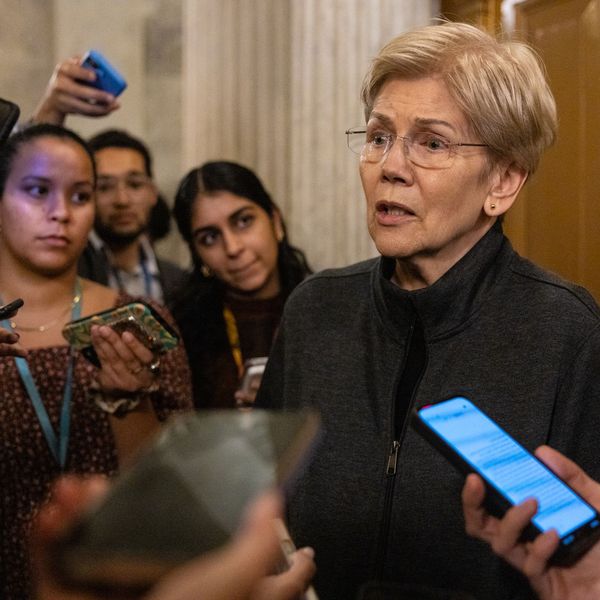After the financial meltdown of 2008, I remember
thinking that I wouldn't be running into Wall Street lobbyists much
anymore in the halls of Congress.
If you'd just driven the economy off a cliff,
wouldn't you be embarrassed to show your face on Capitol Hill? And
surely, I thought, these firms wouldn't spend their taxpayer bailout
money on high-priced lobbyists.
Boy, was I naive. Last year alone,
Wall Street spent more than $200 million to block efforts to rein in
their recklessness.
And the investment is paying off. The financial reform bills
moving through Congress are full of holes for greedy bankers to exploit.
Just
look at the Senate Democrats' new bill. One place you can see the Wall
Street lobbyists' handiwork is in all the exemptions for derivatives,
the complicated financial instruments blamed for accelerating the
crisis.
Analysts say the bill would exempt up to 40 percent of
derivatives from being traded on open exchanges. This means that high
flyers could still do their riskiest gambling in secret - far from the
eyes of any regulator cops.
This type of over-the-counter trading
is kind of like backroom poker. In most cases, it adds no value to the
real economy, so it's exactly like betting. Except if the game goes
really badly, it's not one unlucky gambler who stands to lose his shirt -
it's the entire economy.
You'd think we would've learned this
lesson after the AIG debacle. The insurance giant was a hopeless
gambling addict. It issued gazillions of so-called credit default swaps,
particularly crazy deals that were supposed to be like insurance
against bad investments, but weren't backed up with actual capital.
Thanks
to deregulation, AIG was able to conceal its bets from government
regulators, much like the husband who hides his gambling problem from
his wife until the goons show up to collect.
Once the subprime
mortgage crisis erupted and the market began to crash, AIG couldn't make
good on its bets. But instead of getting whacked in the knees, AIG got a
$180 billion taxpayer rescue.
And AIG was hardly playing alone in
the backroom betting parlor. Although government regulators still
should've seen the crash coming, Wall Street's frenzied betting in the
secret derivatives market made it more difficult.
While we're
still struggling to recover from the catastrophe, it should be
unimaginable that derivatives not be subject at least to a modest
requirement that they be traded on exchanges.
This reform alone
wouldn't be enough to prevent another crisis. But if Congress can't
crack down on backroom betting, are they up to the bigger job of
transforming our casino economy into one that meets real economic needs?


